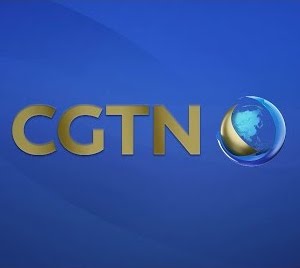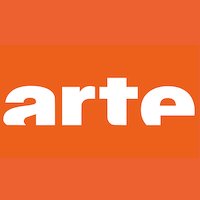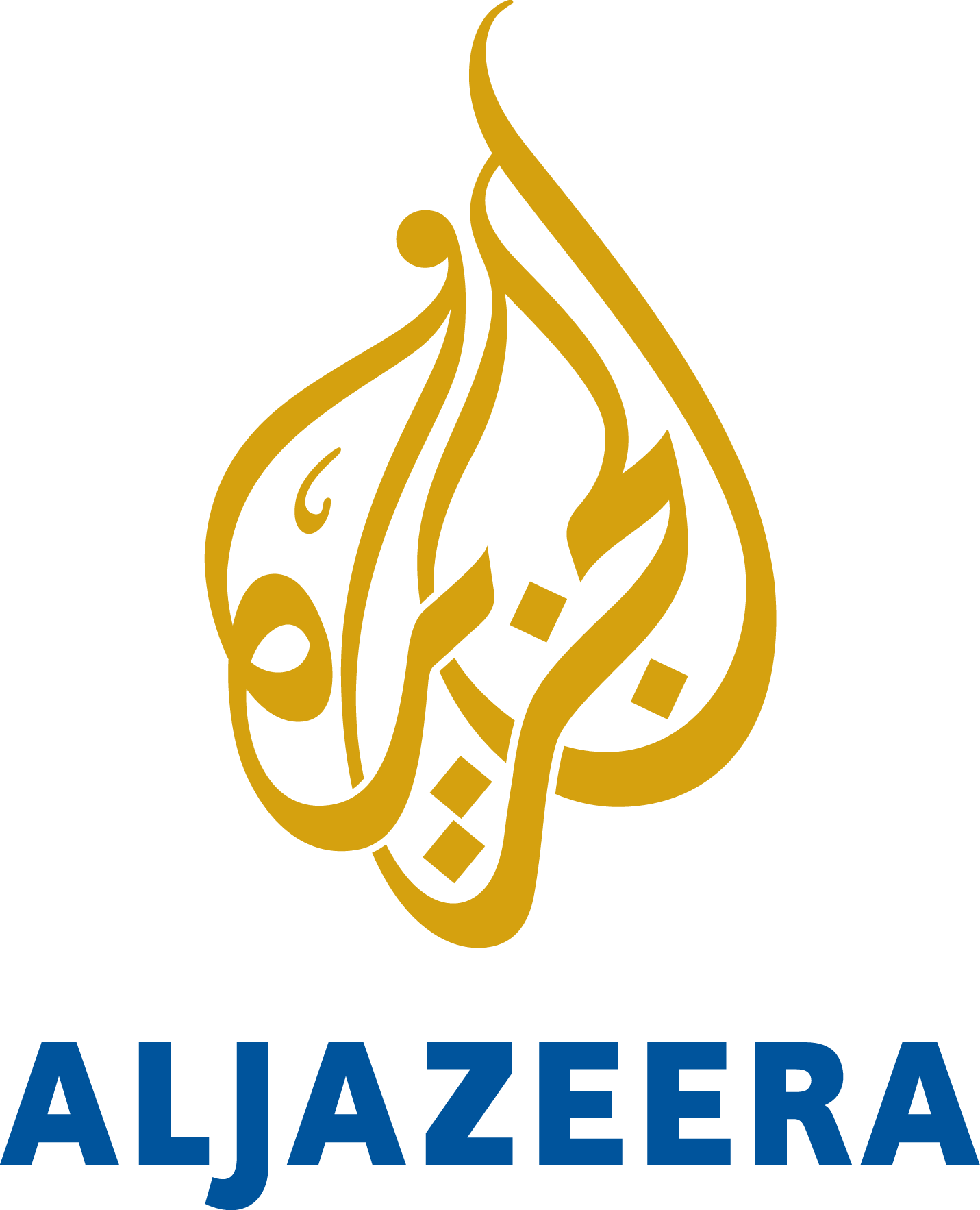Kahlil Gibran "Spirit of Excommunicated Libertarian Conservatism" Awards
I returned late last night after an amazing 2 days in Washington, DC for the annual "Kahlil Gibran Spirit of Humanity Awards", sponsored by the Arab American Institute. For starters, I (George Ajjan) was quoted, along with my Arab-American Republican colleagues Sherine el-Abd and Hesham Mahmoud as well as Democrat Samer Khalaf, in the Record in a piece by Herb Jackson.
Without a doubt, the remarks made by Hagel, whose status as a favorite in the Arab-American community cuts across partisan lines, were the highlight. He began by joking that he "always savor(s) the opportunity to be with George Salem's rich and influential friends. For those of you who are not rich and influential, I am sorry you are here."
He described Arab-American input into the political process as "part of the arc of wise counsel that American leaders listen to" and then made one of his very few characteristic references to the Iraq War during the evening by saying, "it will matter little how many US marines or paratroopers we put in any country." Endorsing an expansion of regional dialog to include "Iran and Syria" (yawn), he said, "I've never found a situation in which things get better if you don't deal with them."
Hagel scored a very big hit with the audience by recounting his run-ins with the so-called "Israeli lobby" (that term has about as much finesse as the word "neoconservative"), in particular with one journalist who suggested that his support for Israel was not strong enough. Hagel asked rhetorically, "How do you measure my support?" He then mentioned signing lobbying letters, casting votes, or things he said publicly. The response was that the concerned parties "Can't count on [Hagel] as an 'automatic'". He asserted:
![]() Perhaps Hagel did not recognize the fact that Gibran was a Catholic himself [insert standard argument here about how not all Muslims are Arab, not all Arabs are Muslim], but this was corrected by one of the evening's other award recipients, Theodore Cardinal McCarrick, who pointed it out.
Perhaps Hagel did not recognize the fact that Gibran was a Catholic himself [insert standard argument here about how not all Muslims are Arab, not all Arabs are Muslim], but this was corrected by one of the evening's other award recipients, Theodore Cardinal McCarrick, who pointed it out.
However, technically speaking Hagel was correct, because as very few people know, Khalil Gibran was excommunicated from the Catholic Church after the publication of Spirits Rebellious. The Maronite authorities later rescinded his excommunication and he was given an elaborate funeral.
Why would such a great man be excommunicated from the Church? Well, the quote selected by another star of the Arab-American community, Washington Post Middle East correspondent Anthony Shadid, illustrates Gibran's controversial views rather well.
Gibran wrote extensively on his political ideas, as the following quote may sound familiar:
Although, in his defense, I have to say I respect Richardson's diplomatic credentials and familiarity with international affairs, even if I don't necessarily agree with his actions or positions. He's a Democrat President I could probably live with.
Then came California Senator Dianne Feinstein, who I must admit, was quite good, at least as far as liberal windbags go. She was way better than Princess Pelosi was in 2004, for example. Feinstein won over the audience by speaking forcefully against cluster bombs:
Feinstein endorsed the Arab Peace Initiative, and spoke about the briefing given to the Senate by General Petraeus. Feinstein said it was the largest attendance of any confidential briefing she's ever seen, and that virtually every Senator was there.
Finally, she said that she hopes the US "learns from preemptive war – it's the wrong thing to do." Hopefully Ms. Feinstein herself will learn that voting to authorize preemptive war, as she did back in 2002, and then pandering with criticism when it's politically safe to do so years later after thousands have died, is also the wrong thing to do.
AAI Chairman George Salem spoke about his work with the Aspen Institute, and mentioned that the organization was involved with the granting of $300 million of microloans in the West Bank and Gaza. He then introduced Assistant Secretary of State for Educational and Cultural Affairs Dina Habib Powell, who led a business delegation to Lebanon, bringing executives from Cisco (CEO John Chambers) and Intel (which has extensive operations in Israel), as well as Occidental Petroleum CEO Ray Irani and Yousif Ghafari, a successful businessman from Michigan who now serves the United States as a diplomat to the UN (and whose family supported my campaign in 2004). Powell boasted that she met with Lebanese Prime Minister Fouad Siniora and "the entire cabinet" (and by "the entire cabinet" she means, the members of the cabinet that we like, not the Hezbollah ministers who were democratically chosen.)
A contrasting view of Lebanon was given by Anthony Shadid, as he spoke about his coverage of the Summer War of 2006, particularly the attacks on Qana, which he described as "supported by the US and tacitly accepted and encouraged by some in Lebanon itself." Shadid is terrifically humble, he referred to his role as journalist by citing the proverb: A donkey that carries Jesus on a pilgrimage to Jerusalem still comes back a donkey.
Shadid mentioned 2 bad predictions he made: one was just before 911, when he told a colleague that the bin Laden threat was overrated, and another earlier last summer when he told his ex-wife that Beirut was the safest it had been in 30 years. The Pulitzer Prize winning journalist then launched a discussion of the destruction he'd witnessed in the region, saying, "I've covered the repercussions of those mis-predictions...we've lost sight of the humanity of the Middle East."
With that, I strongly agree. But despite the turmoil overseas, the Kahlil Gibran Spirit of Humanity Awards remains, for proud and fortunate Arab-Americans, "the feel-good day of the year."
ps
Dina Habib Powell wants everyone to know that she used to bring leftover mloukhia to school for lunch and that she is a good friend of Hillary Clinton's aide Huma Abedin.
pps
I know, خليل should be spelled Khalil, but Gibran himself spelled it Kahlil.
Arab-Americans marked what one North Jerseyan called the "feel-good day of the year" (that was me) and another called their version of the Oscars with a black-tie awards gala in Washington on Wednesday, honoring leaders and groups who promote the common good...Attendees from North Jersey said the dinner highlights the diversity of Arab-Americans, who come from many countries, span the political spectrum and are as likely to be Christian as Muslim.That quote encapsulates one of the best lessons I've learned from AAI President and co-founder Jim Zogby who, along with AAI Chairman George Salem and many others, is largely responsible for putting Arab-Americans on the map politically. Four years ago, when a number of the Presidential candidates came to Michigan for the AAI's Leadership Conference, Jim corrected one of the Democrat candidates' campaigns, who told him "first we're going to talk about our issues, and then we're going to talk about your issues (meaning Patriot Act, Middle East Peace Process, etc)." Jim bluntly responded, "Your issues are our issues, and our issues are your issues." (continued...)
"It's like a pilgrimage for me," said Sherine El-Abd of Clifton, a member of the Arab American Institute's board of directors who has been attending the dinners since they started in 1999. "It's a time when you get really energized, and emphasizes the pride we have in our heritage." Hesham Mahmoud of Rutherford was most excited about the chance to hear a speech from [Nebraska Senator Chuck] Hagel, a conservative and critic of the war in Iraq.
...Mahmoud and El-Abd are active in Republican politics, and Samer Khalaf of Paramus is co-chairman of the Arab American Democratic Caucus. He said he has seen a change in political attitudes toward Arab-Americans in the past eight years.
George Ajjan of Clifton, a Republican who ran unsuccessfully for Congress in 2004 against Democratic Rep. Bill Pascrell of Paterson, agreed. "Issues that are important to Arab-Americans are important to all Americans," Ajjan said. "Just because Arab-Americans have emotional feelings about the Middle East, it does not mean we're not as concerned about tax cuts, health care, civil rights and other things."
Without a doubt, the remarks made by Hagel, whose status as a favorite in the Arab-American community cuts across partisan lines, were the highlight. He began by joking that he "always savor(s) the opportunity to be with George Salem's rich and influential friends. For those of you who are not rich and influential, I am sorry you are here."
He described Arab-American input into the political process as "part of the arc of wise counsel that American leaders listen to" and then made one of his very few characteristic references to the Iraq War during the evening by saying, "it will matter little how many US marines or paratroopers we put in any country." Endorsing an expansion of regional dialog to include "Iran and Syria" (yawn), he said, "I've never found a situation in which things get better if you don't deal with them."
Hagel scored a very big hit with the audience by recounting his run-ins with the so-called "Israeli lobby" (that term has about as much finesse as the word "neoconservative"), in particular with one journalist who suggested that his support for Israel was not strong enough. Hagel asked rhetorically, "How do you measure my support?" He then mentioned signing lobbying letters, casting votes, or things he said publicly. The response was that the concerned parties "Can't count on [Hagel] as an 'automatic'". He asserted:
"I am a supporter of Israel, but first I am an American Senator. No relationship should ever be founded on holding hostage other relationships. Why can't I have a relationship with Israel not at the expense of my friends in the Arab world or the Muslim world. Why must it be a choice? It is not a choice."The rest of Hagel's talk, which was delivered in a very personal way and not from notes, was more anecdotal and philosophical in nature:
"The history of man is clear on one point – the human condition has always driven events – bondage, poverty, despair. When man is without dignity, little else matters...God didn't put us on this Earth to hurt each other, that was our choice...It is man made in its challenge, and it will be man-made in its answer...We are making a better world...every human being on the face of the Earth should have the opportunity to do more than just exist."He then surprised everyone with a personal anecdote that has to rank as one of the greatest moments in the history of the Gibran Awards. After joking that his mother only allowed "one lawyer per family, one politician per family", he talked about how his younger brother Jim was killed in car accident 6 months after he and his brother Tom had returned from Vietnam. On his brother Jim's tombstone is a quote from Gibran himself, from A Tear and a Smile. Hagel then suggested that it was a bit bizarre that they picked an Arab for their brother's tombstone. Since the family was Catholic, it would be more expected to pick something from St. Francis or a Pope.
However, technically speaking Hagel was correct, because as very few people know, Khalil Gibran was excommunicated from the Catholic Church after the publication of Spirits Rebellious. The Maronite authorities later rescinded his excommunication and he was given an elaborate funeral.
Why would such a great man be excommunicated from the Church? Well, the quote selected by another star of the Arab-American community, Washington Post Middle East correspondent Anthony Shadid, illustrates Gibran's controversial views rather well.
"I love you when you bow in your mosque, kneel in your temple, pray in your church. For you and I are sons of one religion, and it is the spirit."Not exactly Catholic dogma. Gibran was a classic Syrian nationalist, and a secular hero in the mold of Antoun Saadeh, founder of the Syrian Social Nationalist Party (SSNP) or Abraham Mitrie Rihbany, who wrote The Syrian Christ and was chosen by various Syrian-American organizations to represent them at the Paris Peace Conference following WW I. How interesting that 3 of the most prominent Syrian nationalists were all "Lebanese"...
Gibran wrote extensively on his political ideas, as the following quote may sound familiar:
"Are you a politician asking what your country can do for you or a zealous one asking what you can do for your country?"He was a conservative...
"I believe that even as your fathers came to this land to produce riches, you were born here to produce riches by intelligence, by labor...to be a good citizen is to produce wealth by labor and only by labor, and to spend less than you have produced that your children may not be dependent on the state for support when you are no more,"a libertarian...
"And what is it to be a good citizen? It is to acknowledge the other person's rights before asserting your own, but always to be conscious of your own. It is to be free in thought and deed, but it is to know that your freedom is subject to the other person's freedom,"and, as I mentioned last year as I quoted Gibran's piece To Young Americans of Syrian Origin, an inspiration to Arab-Americans:
"...stand before the towers of New York, Washington, Chicago and San Francisco saying in your heart, 'I am the descendant of a people that built Damascus, and Biblus, and Tyre and Sidon, and Antioch, and now I am here to build with you, and with a will.'As for the event itself, there are several other individuals who graced the stage that I should mention. First is New Mexico Governor Bill Richardson. He spoke first and basically pandered, mentioning bluntly that he would close down Guantanamo Bay and Abu Ghraib prisons. He also said he would "look into" problems with the Patriot Act. Look into? Excuse me, but are Sections 213, 215, 216, and 505 buried under 50 feet of solid rock? Richardson spoke a bit of Spanish for good measure and then apologized for his last name.
It is to be proud of being an American, but it is also to be proud that your fathers and mothers came from a land upon which God laid His gracious hand and raised His messengers.
Although, in his defense, I have to say I respect Richardson's diplomatic credentials and familiarity with international affairs, even if I don't necessarily agree with his actions or positions. He's a Democrat President I could probably live with.
Then came California Senator Dianne Feinstein, who I must admit, was quite good, at least as far as liberal windbags go. She was way better than Princess Pelosi was in 2004, for example. Feinstein won over the audience by speaking forcefully against cluster bombs:
"I'm not here to talk to you about cluster bombs, we will lose that fight, but I will be back next year, and the year after that, and the year after that…we will ban cluster munitions!!!"Feinstein prasied Secretary of State Condoleezza Rice for making repeated trips to the region, and for expressing her willingness to meet with Iranian diplomats at the ministerial level. She distanced herself about 8 picometers from the status quo in Washington by stating that she supports the diplomatic engagement of "Iran and Syria" (surprise, surprise), saying, "I really believe in this kind of diplomacy – sitting down at the table with someone with whom you disagree."
Feinstein endorsed the Arab Peace Initiative, and spoke about the briefing given to the Senate by General Petraeus. Feinstein said it was the largest attendance of any confidential briefing she's ever seen, and that virtually every Senator was there.
Finally, she said that she hopes the US "learns from preemptive war – it's the wrong thing to do." Hopefully Ms. Feinstein herself will learn that voting to authorize preemptive war, as she did back in 2002, and then pandering with criticism when it's politically safe to do so years later after thousands have died, is also the wrong thing to do.
AAI Chairman George Salem spoke about his work with the Aspen Institute, and mentioned that the organization was involved with the granting of $300 million of microloans in the West Bank and Gaza. He then introduced Assistant Secretary of State for Educational and Cultural Affairs Dina Habib Powell, who led a business delegation to Lebanon, bringing executives from Cisco (CEO John Chambers) and Intel (which has extensive operations in Israel), as well as Occidental Petroleum CEO Ray Irani and Yousif Ghafari, a successful businessman from Michigan who now serves the United States as a diplomat to the UN (and whose family supported my campaign in 2004). Powell boasted that she met with Lebanese Prime Minister Fouad Siniora and "the entire cabinet" (and by "the entire cabinet" she means, the members of the cabinet that we like, not the Hezbollah ministers who were democratically chosen.)
A contrasting view of Lebanon was given by Anthony Shadid, as he spoke about his coverage of the Summer War of 2006, particularly the attacks on Qana, which he described as "supported by the US and tacitly accepted and encouraged by some in Lebanon itself." Shadid is terrifically humble, he referred to his role as journalist by citing the proverb: A donkey that carries Jesus on a pilgrimage to Jerusalem still comes back a donkey.
Shadid mentioned 2 bad predictions he made: one was just before 911, when he told a colleague that the bin Laden threat was overrated, and another earlier last summer when he told his ex-wife that Beirut was the safest it had been in 30 years. The Pulitzer Prize winning journalist then launched a discussion of the destruction he'd witnessed in the region, saying, "I've covered the repercussions of those mis-predictions...we've lost sight of the humanity of the Middle East."
With that, I strongly agree. But despite the turmoil overseas, the Kahlil Gibran Spirit of Humanity Awards remains, for proud and fortunate Arab-Americans, "the feel-good day of the year."
ps
Dina Habib Powell wants everyone to know that she used to bring leftover mloukhia to school for lunch and that she is a good friend of Hillary Clinton's aide Huma Abedin.
pps
I know, خليل should be spelled Khalil, but Gibran himself spelled it Kahlil.















